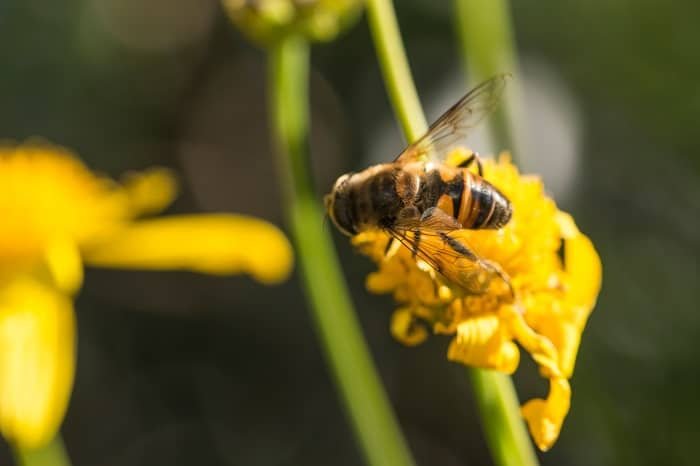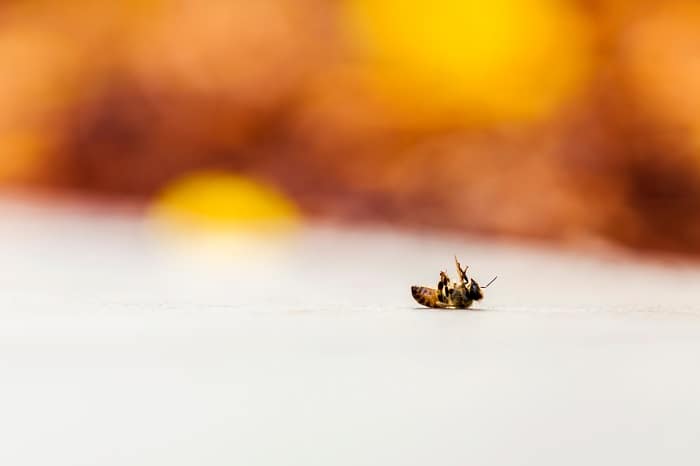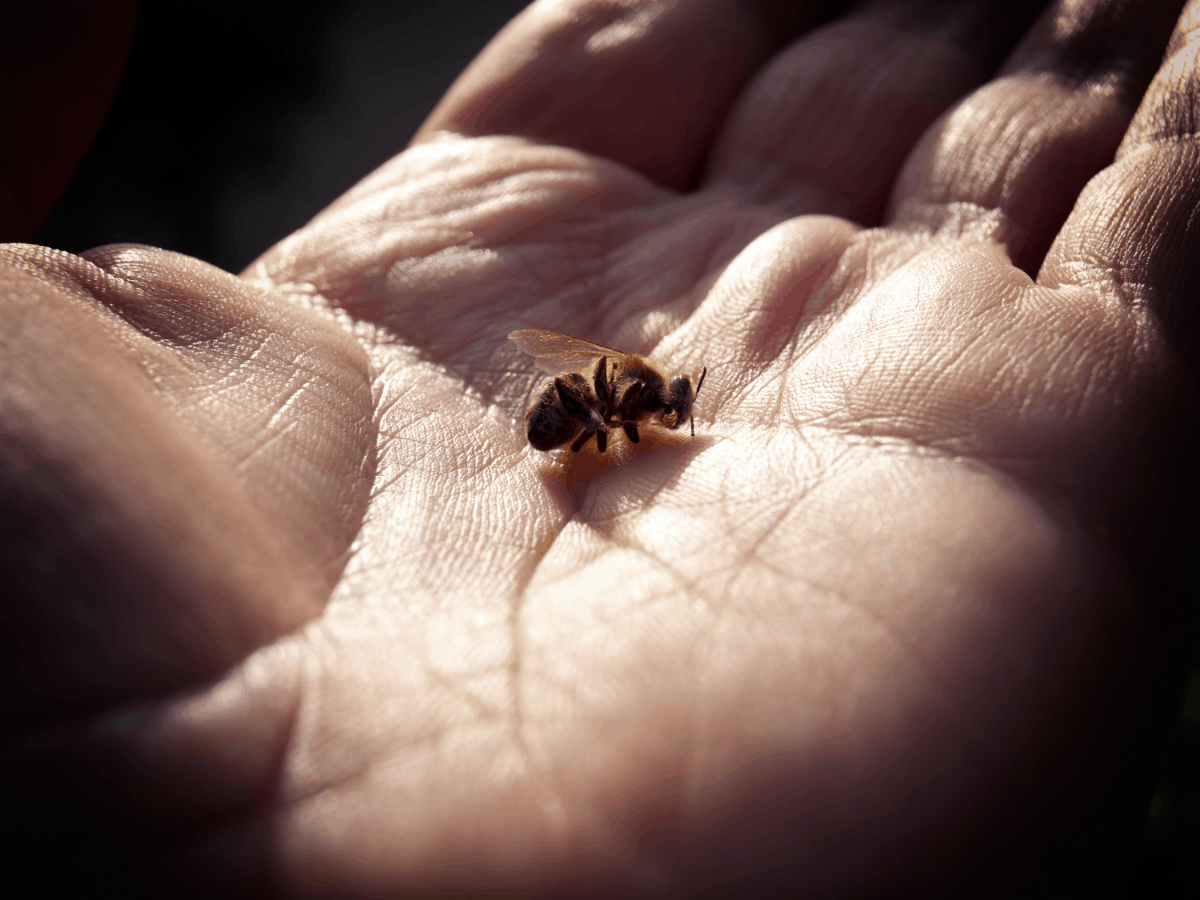Last Updated on October 9, 2024
Tiny and seemingly insignificant, this is what some people think about bees. However, did you know that bees are actually very, very important? Aside from keeping the balance of the ecosystem, they help pollinate crops, fruits, and vegetables. In fact, bees are considered to be one of the most important pollinators in the world! Without them, we’re bound to doom. That’s why we should know more about the causes of bees dying so that we can help them in any way possible.
If you’re interested to know more about bees, below is an informative guide that will teach you how important they are, how to save them, and what causes them to die.
Table of Contents
How Important Are Bees?
So that we can give importance to these amazing, tiny insects, it’s important that we know why they’re crucial. Here are some of the reasons why:
Pollinates Crops, Fruits, Vegetables, and Wild Plants
As mentioned above, bees are considered the number one pollinator in the world. A world without bees will have difficulty producing food. Bees are great as they pollinate all types of plants and flowers – whether we’re talking about crops, fruits, and vegetables.
In order for plants to germinate, pollen must be transferred from the anther to the stigma, and the bees can help this process by transferring from one plant to the next, bringing with them the pollens so that the plants can grow and eventually produce food.

Bees are known as busy workers as they pollinate billions of plants every year, so they’re really influencing how we’re producing food today. Without bees, we’ll only rely on other insects, birds, and bats for pollination, but as bees are the biggest pollinators, they can’t do much as the bees.
Aids in Building Wildlife Habitats
Bees are known for creating these amazing hives, but did you know that bees also help build other wildlife habitats? Well, not literally, but they do help in a way through pollination. As they promote plant growth, they’re helping build a much more abundant environment, creating wildlife habitats for other animals.
From tropical forests to savannah woodlands, bees are great contributors to the growth of these. In fact, some trees like poplars and willows can’t live without pollinators. So, without bees as the main pollinator, the animals and plants that depend on them won’t be around here today.
Read this article if you want to know how a honey bee hive looks like.
Balances the Ecosystem
Just like any other animal, bees are crucial in balancing the ecosystem. Each has its own role in maintaining the ecosystem, and it is through this balance that we gain benefit. This interconnection between animals and plants is complex and removing one of them, for instance, the bees can result in drastic changes.
Bees are important for food production. However, it’s also important that we recognize how other animals and plants depend on them. Co-existing is a thing in the animal and plant kingdom, and the relationship between these two is sensitive, so it’s our responsibility to maintain this.
Improves Food Source
Again, because bees contribute to food production by helping pollinate crops, fruits, and vegetables, they definitely are one of the reasons why we have a consistent food source. What’s more is that as they produce honey, we can also take advantage of this sweet and healthy syrup. In fact, not only are we the ones who eat honey, but other animals also love this like birds, raccoons, insects, opossums, and the like.
Helps the Economy
Lastly, when it comes to the economy, bees are great as they are the ones who help enhance food production, making them valuable in producing all types of crops, fruits, and vegetables. Indeed, as we’re dependent on them, we can’t thank them more for assisting us in this field. Bees are definitely one of the factors why our economy is consistently thriving.
The Causes of Bees Dying
We’ve greatly placed importance on bees, stating how crucial they are in balancing the ecosystems and producing food not only for us but for other animals too. However, we can’t deny the fact that their numbers are decreasing. Sadly, this truth is happening all over the world because of these reasons:
Habitat Loss
It’s sad to know that while bees promote wildlife habitat growth, they’re losing the very habitats that they help build because of us. Habitat loss is real, and not only are bees getting affected but other animals too and even us eventually.
This is because of the changes in how we use the land, from huge urban development to intensive farming. That’s why these fuzzy pollinators have fewer habitats where they can forage for food as time goes by, leaving them malnourished.
Habitat for bees is needed so that they can find food to have a balanced diet and have a nesting place when they’re reproducing. Now, the sad reality is that these bees are now dependent on protected wildlife areas, which shouldn’t happen in the first place. We should allow them to reproduce and live freely, yet we’re taking over the land like there’s no tomorrow, leaving a lot of animals homeless.
Climate Change
Another factor to consider is climate change. Today, winters become wetter and warmer, making some wild species to get confused. For bees, the changes in weather disrupt their nesting time. Plants and flowers are also affected, so they grow at the wrong time, confusing bees even more. With climate change rapidly influencing our world, we can’t help but watch as our plants and animals slowly die unless we do something about it. Fortunately, as climate change is starting to make people realize its bad effects, more and more are becoming aware and are actually finding ways to lessen its effects on us.

Pesticide Use
Pesticides have a really bad effect on our environment even if they’re applied correctly. When it comes to bees, pesticides can actually impact how they breed and how they fight off diseases. Pesticides can even impair bees’ ability to navigate. While pesticides are made to get rid of unwanted pests, we can’t deny that they too harm the beneficial ones. The good news is that there are alternatives now. However, bigger farms are yet to make a change.
Diseases and Invasive Species Pests
Bees are susceptible to diseases and other pests and species too. Now that they’re weaker as they’re subjected to pesticides, which lowers their resistance to these diseases, bees are likely to get killed easily.
For instance, varroa mites are bad for bees as they transmit disease and even sap the energy out of the bees. Bees are also prone to fungal diseases. The great thing is that beekeepers are protecting them from getting exposed to these diseases and pests.
There are also instances where some species take over bees’ habitats, disrupting the balance of the area. This causes damage to the ecosystem, causing some bees to die in the process. Beekeepers are also keeping an eye out for these invasive insects, so they’re protected now, thankfully.
How to Help Save the Bees?
Now that we’re aware that bees are dying, we need to do something about the decline in their number. Luckily, we can still do something about it as bees are not yet instinct (we should not get to the point where they become endangered). However, we need to do these steps consistently and in bigger numbers. So, start by following these tips religiously and start spreading them to your friends and family too:
Provide Shelter
Your lawn or garden can already be a great help, so as much as possible, don’t trim your weeds! While a manicured lawn is great, it serves no purpose for the bees. If you really care for them, a sanctuary where bees can live in is needed, and this means not mowing your lawn until it looks bald. If you have flowers and vegetables, you can separate them anyway, so there is no need to always have a polished garden.
Stop Using Pesticides and Herbicides
We’ve already discussed how using these products are harmful to the bees. That’s why stop using them altogether. Instead, use organic or natural ones. You’ll be surprised at how varied and accessible these options are when you really make an effort to know them.
Make a Bee Garden
You don’t have to be a beekeeper in order to interact with bees. You can just make a bee garden, and you can already greatly help. Bees love plants like lavender, mint, poppies, and the like. So, it would be great if you’re going to plant them in your area. In this way, they’ll have a safe and abundant haven.
Be More Responsible When Shopping
Buy local fruits and vegetables that are earth-friendly. Also, choosing organic products is much more responsible as they don’t use chemicals at all. Stay informed always. There are a lot of misconceptions out there, so it’s better that you educate yourself so that you can make wiser decisions when you shop.
Conclusion
We all know how important bees are. However, their numbers are slowly declining because of a lot of factors, and most of them, if not all, is because of us. That’s why we should do something to protect them.
Being informed is the first step. Next is that we do something to help defend them, even just in small ways such as the suggestions provided above. If you know more about how to take care of bees, comment down below so that we’ll have more awareness in protecting them.

Lacey is an environmental enthusiast and passionate advocate for living green and sustainable. She believes that everyone can make a difference, no matter how small. Lacey is dedicated to reducing her own carbon footprint and educating others on the importance of living greener. She is an advocate for green energy and sustainable practices. She is an active member of her local community, volunteering with local conservation efforts, and taking part in sustainability initiatives. Lacey is a firm believer that the only way to ensure a sustainable future is to work together and make small, but important changes.

